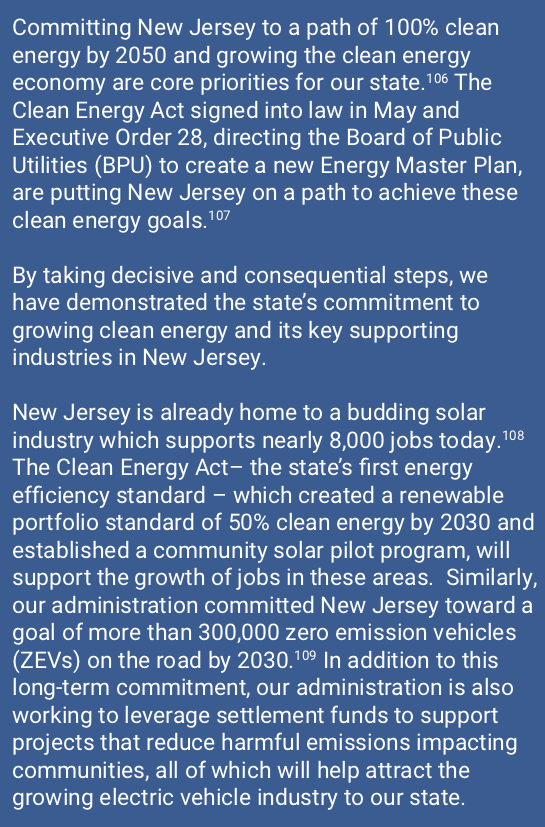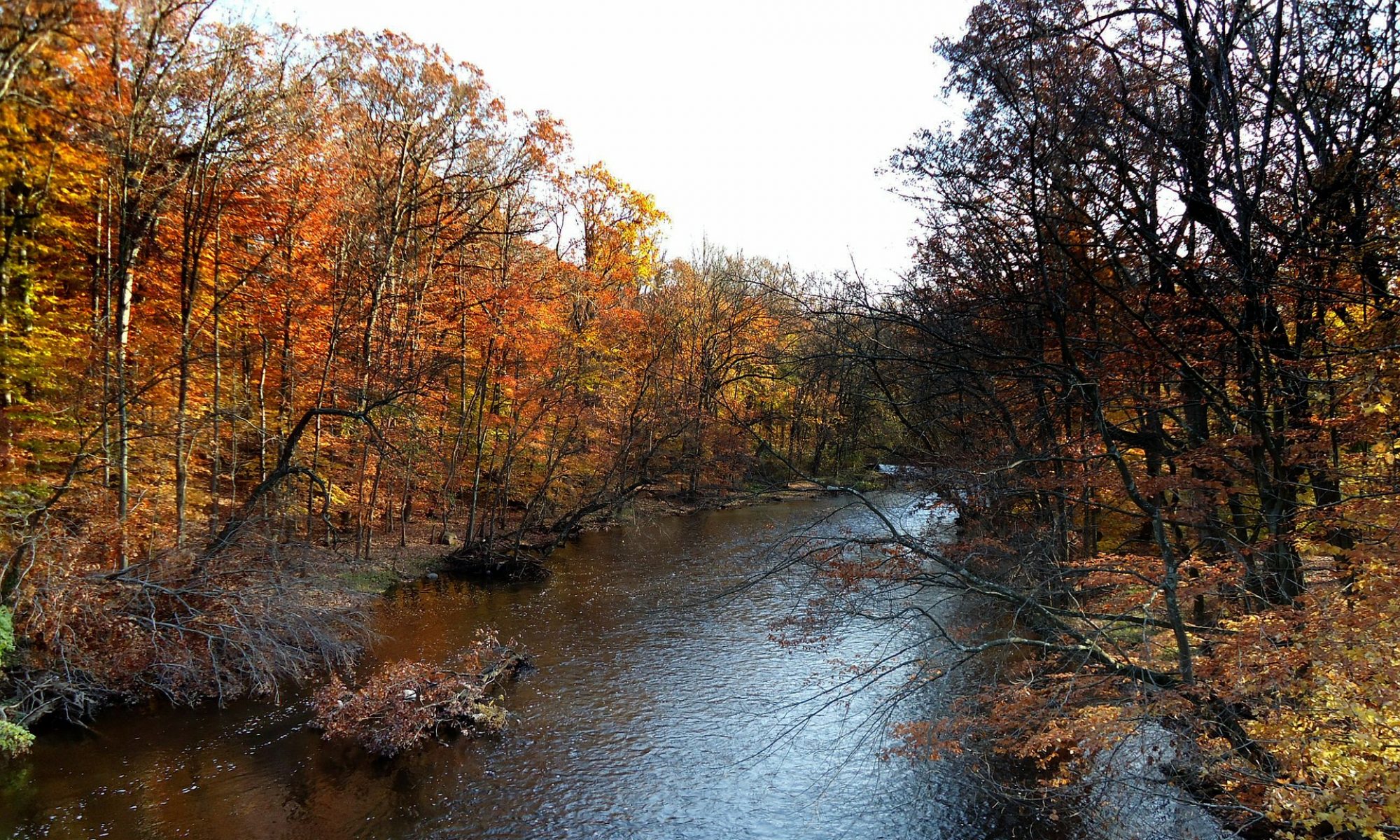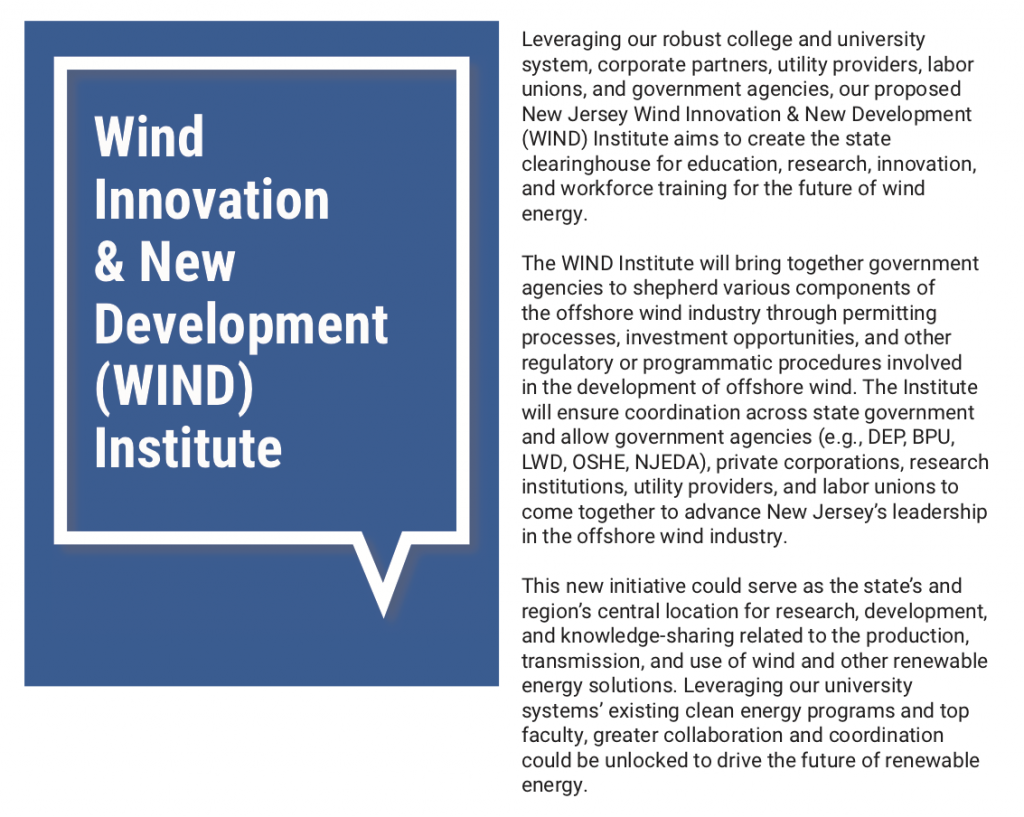New Jersey’s new “economic development master plan” is embedded in a report issued by the NJ Economic Development Authority titled “The State of Innovation: Building a Stronger and Fairer New Jersey.” First accounts of the report, such as this one from NJBIZ, mentioned a focus on wage growth, on community college education, on innovation, and on streamlining regulations for small business, but did not specifically mention that clean energy is a major part of the “innovation” focus.
Gov. Phil Murphy announces his major economic agenda on Oct. 1, 2018 at ON3 biotechnology campus in Nutley. – (EDWIN J. TORRES/NJ GOVERNOR’S OFFICE)
Gov. Phil Murphy on Monday unveiled his “master plan” aimed at reimagining how the state attracts and keeps jobs and businesses and kick starting New Jersey’s economy, which he said lagged for the past decade under the administration of Chris Christie.
Murphy, at the ON3 biotechnology campus in Passaic County, said his goal is that by 2025 New Jersey will have added 300,000 new jobs, achieved a 4 percent wage growth or an increase of $1,500 in median wages, 40,000 more women and minorities working in STEM fields, $645 million in new venture capital investment, and the employment of 42,000 more women and minorities.
More broadly, Murphy’s economic outline has four parts – investment in people, investment in communities, a build-up of the innovation economy and making government work better for small businesses by streamlining much of the permitting and application processes and bureaucracies online.
What interests us here is the extent to which the report includes the clean/green economy as part of its vision of the future, or whether it has missed a significant sector in discussing the state’s economic development opportunities. In particular it failed to mention an obvious economic driver in PACE and other financing mechanisms for extensive and widespread energy and resiliency improvements to our cities and towns.
What it does recognize, under the “innovation economy” heading, is that “Leading in Clean Energy” can be a significant economic contributor:

This is certainly promising, but there’s a lot more that can be, and is being, done. PACE in particular could be a winning policy issue, if the Governor wanted to make it that.
That being said, the principal suggestions in this report—raising the minimum wage, expanding access to community colleges, facilitating investment in Opportunity Zones, and so on—are all positive, if in some cases aspirational. These are all good things. But what above all needs to be recognized today (as the IPCC has recently reported) is that we need to take urgent action on matters relating to climate change, an all hands on deck call to drastically cut emissions, if we are to have a hope (increasingly dim) of staying under 1.5°C. And in crisis there is opportunity. If we can seize the initiative in innovation in this area, we may well be on a path to sustainable growth that the world will take notice of.
So we’re pleased to note, as mentioned elsewhere, that the NJEDA’s new of Office of Economic Transformation has already reached out to discuss the implementation of Commercial PACE with us. PACE is a winning issue because it accomplishes multiple goals by leveraging the local governments’ assessment authority to create a voluntary plan, at no cost to taxpayers, that facilitates private investment in clean energy and resiliency improvements. Stay tuned for more to come.




One Reply to “Finding the Green in Murphy’s ‘Economic Master Plan’”